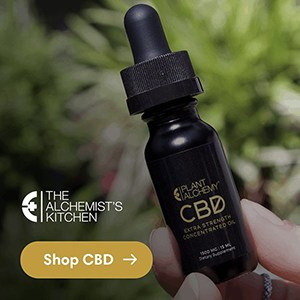The wildly popular CBD oil has become mainstream. For many people, CBD is ingrained in their wellness routines now like a daily multivitamin. For others, it’s crucial for managing their health issues ranging from anxiety to seizures. If CBD products are part of your everyday life, then you want to have access to them even when you aren’t at home. However, the laws around cannabis products can be confusing, leaving many people wondering: “Can I fly with CBD?”
What are TSA Regulations for CBD
The Transportation Security Administration (TSA) defers to the federal government when it comes to legal and illegal drugs. A drug or medication that is federally legal may be transported during your travel. Many people claim that you can’t bring medical marijuana on your travels, however this is incorrect.
@AskTSA on Twitter has received hundreds of questions concerning flying with cannabis based products. Questions include medical marijuana and non-THC products such as CBD. TSA’s official general response remains: “Products that contain hemp-derived CBD oil or are FDA-approved are generally legal & can fly.”
They also provide a link to the official Homeland Security website for further information. This page shows information for medical marijuana, to which TSA says, ‘Yes’ you can bring in your carry on and in your checked bag with ‘Specific Instructions.’ These specific instructions refer back to the fact you can only bring what is federally legal. So less than 0.3% THC remains on the TSA approved list. However, the site does note that it’s the TSA officer’s decision whether or not an item in question is allowed past the checkpoint.
The TSA does not specifically search for cannabis products during pre-flight security checks. However, if any illegal substance is discovered, security officers bring in law enforcement to handle the matter. If you are carrying federally legal CBD with less than 0.3% THC, you should not be stopped by TSA.
What are FAA Regulation for CBD on Planes
Just because CBD is federally legal and thus you are able to bring it traveling, doesn’t mean you have free reign. Specific amounts, as well as restrictions on what can and can’t fly, still apply.
If you want to bring CBD oil in your carry on, you still have to abide by the approved ‘3-1-1 Rule’: 3.4 ounces of liquids per 1 quart sized zip lock per 1 passenger.
Additionally, even though you can technically bring vape cartridges onboard, they pose some potential issues.
First, as stated above, it is up to the discretion of the TSA agent if they allow the item through security. It is impossible to tell if something is CBD vs THC in an oil cartridge until it is consumed, which an agent won’t test. So you could run into an agent who will not allow it, or even involve law enforcement if they are suspicious.
The second issue is that many airlines are adding pen batteries to the restricted list, and are not allowing them in carry ons.
And of course, you can’t smoke the vape in the airport or on the plane anyway.
Unfortunately, vape pens, e-cigarettes, and the like remain prohibited by the FAA in your checked luggage. The FAA says all these devices must be carried on. But this can cause confusion now that some airlines are saying their batteries cannot be carried on. So it’s best to check with your airline before packing your vape.
Can You Bring CBD Oil on a Plane
To sum it up, hemp derived CBD with less than 0.3% THC is legal to fly. If you want the CBD in your carry on, it must be less than 3.4 ounces.
Smoking is never allowed on the plane, vape or flower. Vape pens are not allowed in your checked luggage. It can be risky whether or not they make it through the security check in your carry on. CBD with high amounts of THC, as well as other forms of marijuana, remain federally illegal and not permitted in either a carry on or checked luggage.







